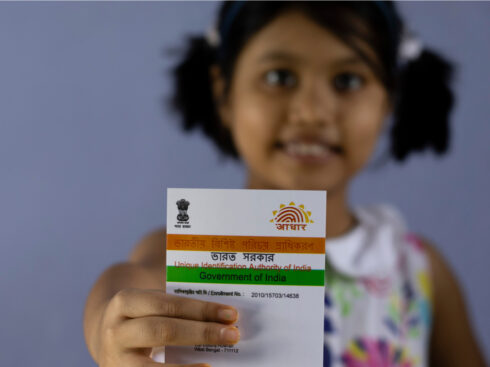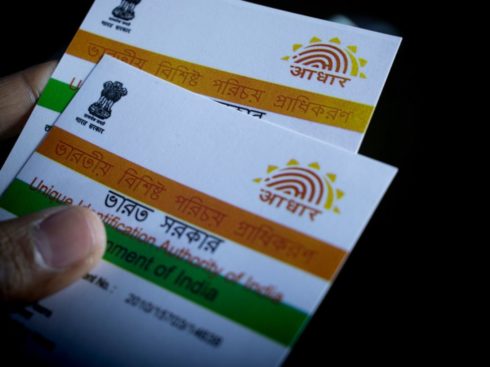
SUMMARY
The UIDAI Divides Authentication User Agencies Into Two Types — Local AUAs (Banks) And Global AUAs (Payment Companies)
After mobile wallet transactions fell 13% to 268.79 Mn in March 2018, it looks like wallet companies are ready to record further downfall in the first quarter of 2018, thanks to the UIDAI (Unique Identification Authority of India)’s attempt to ensure data security.
According to an ET report, the UIDAI has imposed restrictions on digital payment companies accessing its database by classifying them as local authentication user agencies and citing concerns over their security systems.
It is to be noted that an authentication user agency (AUA) captures Aadhaar information from a person and submits it to the Central Identities Data Repository for validation.
Now, the UIDAI has segregated this agency into two — local AUAs, which can access limited information, and global AUAs, which can access the complete information in the repository. Global AUAs cover banks while all payment companies and other entities in the authentication business fall under local AUAs.
According to the report, the UIDAI noted that “only global AUAs will be allowed access to full eKYC along with Aadhaar numbers, while local agencies will have restricted access.”
In simple terms, this means that payment companies can only accept virtual Aadhaar numbers from consumers, which are provided by the UIDAI for verification.
It essentially means the woo-woo magic that happened on devices with your Aadhaar number won’t happen anymore; rather you will have to source your virtual ID from the UIDAI website and provide it to the authentication agency. Just another process for KYC-lazy customers, who have stopped using mobile wallets because of these requirements.
The UIDAI also noted that “some entities required to verify clients with Aadhaar number may not have the requisite security systems needed to use or store these numbers and have been precluded from the list of global AUAs.”
The Unending Saga Of e-KYC, RBI, UIDAI, And Supreme Court
Ever since the RBI issued stricter KYC guidelines for digital payment users last October, the sector has seen some major upheaval. As reported earlier by Inc42, the Reserve Bank of India (RBI) had refused to extend the deadline for KYC (Know Your Customer) beyond February 28, 2018, stating that enough time has already been granted to adhere to the prescribed guidelines.
However, adding to the confusion, the country’s Supreme Court, on March 13, 2018, extended the deadline for mandatory linking of Aadhaar card to avail of various government services and welfare schemes. Reports claimed that more than 50% of the PPIs are still not KYC compliant.
Most recently, the RBI asked all payment system operators in the country to store data relating to their customers within India. The move is geared towards ensuring that user details remain secure against privacy breaches. According to the directive, payment companies have been given six months to comply with the newly released norms.
According to industry estimates, the fall, in terms of the number of digital wallet users, has been somewhere around 80% to 90% and is largely the result of most customers shying away from full KYC authentication.
Notably, the completion of the KYC involves linking of Aadhaar card and PAN card to e-wallet mobile applications. The RBI had earlier stated that customers who are not willing to follow the KYC process could close their PPI accounts and get the balance money transferred to their respective bank accounts.
What Is Aadhaar Virtual ID?
Inc42 had earlier reported that the UIDAI has introduced the beta version of the VID (virtual ID) feature. In January, the UIDAI launched a two-layered safety net feature to avoid data breaches. This consists of a 16 digit Virtual ID and limited know-your-customer (KYC) for Aadhaar number holders.
With the virtual ID, there will be no need to share the real Aadhaar number at the time of authentication. Instead, a randomly generated 16-digit code will be shared with the agency every time.
This ID, along with biometrics of the user, like the name, address, and photographs, can provide the necessary details to the concerned agency, without being able to track the actual Aadhaar number of the user.
A user can generate multiple virtual IDs as per the need. The older IDs will get cancelled once a fresh ID is issued to the user. Since the virtual ID gets mapped to the individual’s Aadhaar number, there will be no more need to share the original Aadhar number.
While, the limited KYC feature will provide the agencies with only the essential details, thus avoiding the chance to track and store a user’s Aadhaar number. Agencies can do their own KYC and identify users with ‘tokens’.
Also, as stated by the UIDAI in a media statement, “Agencies that undertake authentication won’t be allowed to generate the virtual ID on behalf of Aadhaar holder.”
The UIDAI has been in a full-drawn battle in the Supreme Court to defend the Aadhaar system, claiming that 13ft high and 5ft thick walls protect Aadhaar data, which continues to witness major leaks. The move to limit access of local AUAs ie wallet companies to UIDAI data in order to ensure data security might be counter-productive to the digital push of the government.


























